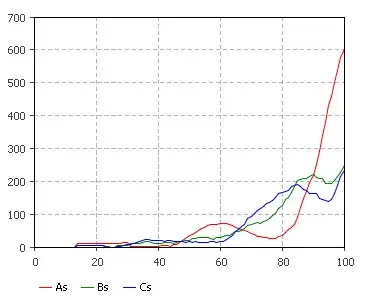- What sort of social structures and mating habits could develop?
- Would monogamous relationships be dominant, or would something different develop?
Note the extreme variability to these answers even in a two-sexed environment. There's no reason to suppose three sexes would suddenly get less complex.
- Are members of the species likely to mate with the same gender across the board, or will they switch around?
Given the number of homosexuals in existence today, when homosexuality makes next to zero sense* from an evolutionary standpoint, I imagine there would be hugely different sexual preferences between members of a three-sexed species when those preferences can actually be useful in the selection algorithm.
- Will population/distributions of the different genders remain approximately equal, or will inequalities/eventual extinction occur?
It's hard to say, but my gut feeling is that, for any given population, one of the sexes would end up being less preferred by the other two sexes, and would therefore eventually go extinct. This would take quite a bit of time, but I think it would eventually happen.
Note that a different sex might go extinct in a different population group, and there's no particular way to determine in advance which sexes would dominate in any particular group.
The only way to keep a sex from going extinct is if all three sexes are required to reproduce. For example, maybe A and B need to mate to produce one half of an embryo, then B and C mate to finalize the embryo. In this case, either selection will find a way to bypass one of the sexes (who will then go extinct), or all three sexes will remain part of a stable population.
As for the proportions, I don't know. It doesn't make a lot of sense to me that there are so many males. One male can easily keep dozens of females pregnant, but somehow nature decided a 50:50 ratio was better. The answer seems to be that males have a selection bias**, so couples with more male children produce more grandchildren, so despite the lack of "need", more males are produced anyways. Obviously the answer is somewhat complex, but if that rationale holds for three sexes, the ratio would likely be even as long as all three sexes are required.
*My best guess, which Google says is some other people's best guess, is that either: having homosexuals around helps the rest of the population's sexual fitness somehow and therefore populations with gay genes thrive better than populations without, or: something that makes people more sexually fit happens to occasionally make gay people, and the added fitness to other people outweighs the reduced fitness of gay people. Or some combination of both. Source -- warning, scantily-clad men, possibly NSFW.
**Source -- warning, naked baby covered in ick, possibly weird and/or NSFW.)
